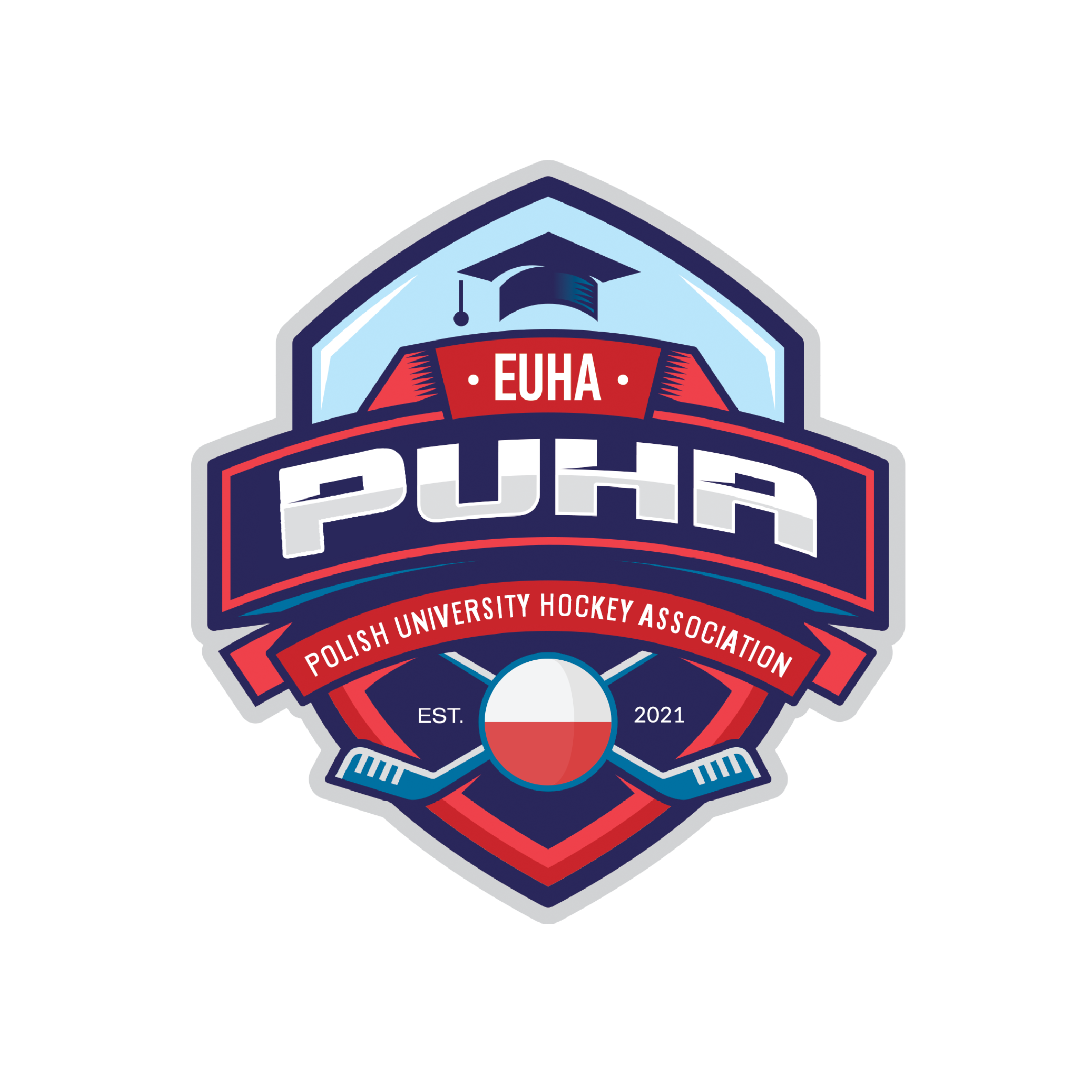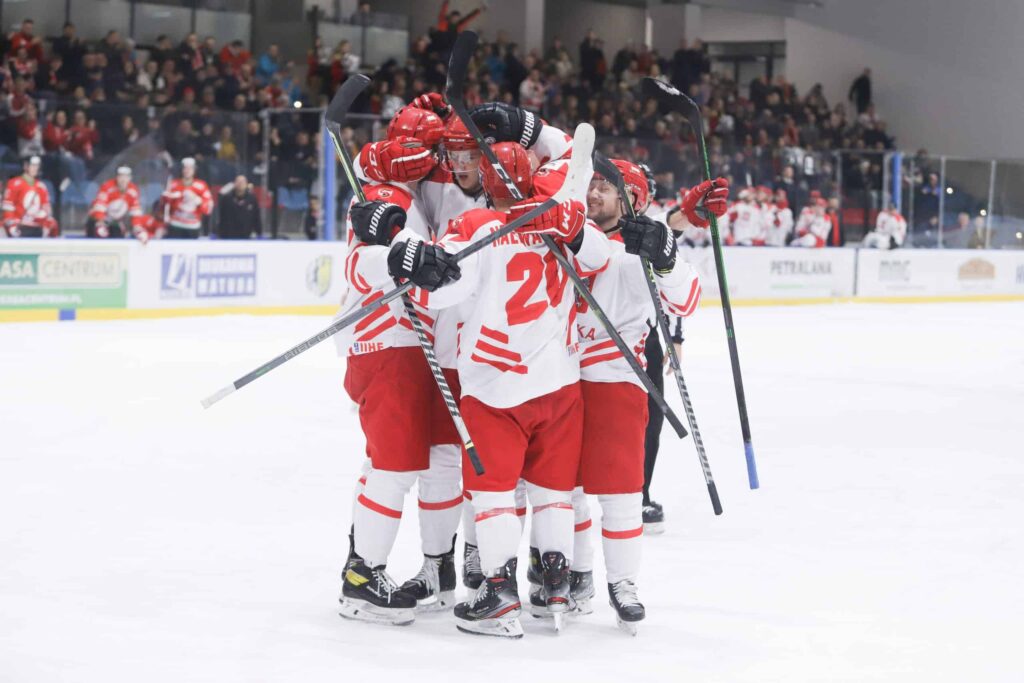Na jakim etapie jesteśmy w procesie organizacji zbliżającego się Akademickiego Pucharu Świata w hokeju na lodzie? – wywiad z Tamásem Horvátem
W dniach 14-19 kwietnia w Cârța w Rumunii odbędzie się międzynarodowa impreza sportowa, co jest dość rzadkim zjawiskiem w regionie. W organizowanym przez Akademię Hokeja na Lodzie Szeklerland i drużynę Sapientia U23 Pucharze Świata w Hokeju Uniwersyteckim weźmie udział osiem czołowych drużyn hokejowych z Polski, Kanady, Stanów Zjednoczonych, Rumunii, Czech, Słowacji, Węgier i Szwecji. Tamás Horvát, członek zespołu organizacyjnego i manager goszczącej Sapientia U23, opowiedział nam o kulisach wydarzenia.
W mediach społecznościowych została niedawno uruchomiona strona dedykowana zbliżającym się pucharze świata. Na jakim etapie jesteś obecnie w trakcie organizacji Mistrzostw Świata w Hokeju Uniwersyteckim?
Na szczęście mogę powiedzieć, że przygotowania idą w dobrym kierunku, ale przed ekipą organizacyjną jeszcze sporo zadań, zanim dotrzemy do mety. Dopiero co osiągnęliśmy punkt, w którym możemy zacząć publikować szczegóły wydarzenia, mając wszystkie elementy projektu na swoim miejscu. W przypadku dużej międzynarodowej imprezy sportowej tej wielkości, w której bierze udział osiem drużyn, wiele uwagi należy poświęcić szczegółom, aby zapewnić sprawne przeprowadzenie imprezy.
Jakie wyzwania wiążą się z organizacją takiego turnieju, jakie obszary wymagają szczególnej uwagi?
Jest to niezwykle złożony proces, na który składa się wiele czynników. Przede wszystkim musimy zadbać o to, aby rozgrywki odbywały się w odpowiednich warunkach, bez błędów i na wysokim poziomie. Ściśle z tym związane jest zakwaterowanie i wyżywienie delegacji i zespołów oraz organizacja programu. Ponieważ jest to wydarzenie międzynarodowe, musimy zwrócić szczególną uwagę na jakość relacji i rozwój relacji z mediami. Nie można też nie wspomnieć o relacjach ze sponsorami, ponieważ jest to duża impreza z dużym budżetem i potrzebujemy pomocy różnych zewnętrznych partnerów. Pragnę podkreślić, że szczególną wagę przywiązujemy również do konieczności pokazywania lokalnych biznesów, lokalnych organizacji i lokalnych wartości podczas Mistrzostw Świata.
Szeklerlandzka Akademia Hokeja na Lodzie oraz drużyna Sapientia U23 uzyskały prawa do organizacji turnieju od European University Hockey Association (EUHA) oraz American University Hockey Association (ACHA). Jak wygląda współpraca z tymi organizacjami, jaką rolę odgrywają w przygotowaniach?
Szefowie dwóch stowarzyszeń współorganizujących są bardzo pomocni w kwestiach technicznych i udostępnianiu kontaktów międzynarodowych, ale faktyczne zadania organizacyjne w zasadzie zależą od nas. Ich wyrażone stanowisko jest takie, że my musimy podejmować decyzje, jest pełne i wzajemne zaufanie. Mimo to konsultujemy się z nimi co tydzień, informując o postępach, a jeśli utkniemy w pewnych obszarach, pytamy ich o opinię. Od początku mieliśmy bardzo dobre relacje zawodowe i osobiste, więc wspólna praca organizacyjna również przebiega sprawnie.
Do gospodarzy dołączą Kanada, Stany Zjednoczone, Szwecja, Słowacja, Czechy, Polska i Węgry. Co możemy wiedzieć o tych drużynach narodowych? Którzy zawodnicy kwalifikują się do mundialu? Jakie warunki muszą spełniać?
Najważniejszym warunkiem selekcji jest to, że wszyscy uczestnicy muszą być studentami lub uczniami. Po drugie, członkowie zespołu nie mogą pochodzić z profesjonalnej ligi hokejowej. Ponieważ europejski hokej uniwersytecki nie jest tak rozwinięty jak hokej uniwersytecki w Ameryce Północnej, istnieją pewne wyjątki w przepisach dla krajów europejskich. Niemniej jednak w tych drużynach nie może być również graczy z kontraktami z profesjonalną ligą hokejową. Tym różnią się te Mistrzostwa Świata od Uniwersjady, w której biorą udział także zawodnicy z lig zawodowych. Profesjonalne dyskusje pokazały, że uczestniczące drużyny będą reprezentować silną selekcję graczy, a ci, którzy przyjdą na wydarzenie lub obejrzą je w telewizji, będą mogli być świadkami turnieju na wysokim poziomie.
Czy są jakieś informacje na temat przebiegu ośmiodrużynowego turnieju i terminarza grup?
Wszystkie informacje na ten temat są już znane. Osiem zespołów rywalizować będzie w dwóch grupach. Grupa A obejmuje Stany Zjednoczone, Słowację, Węgry i Szwecję, natomiast grupa B obejmuje Kanadę, Czechy, Polskę i Rumunię. Dwie najlepsze drużyny z każdej grupy awansują do półfinałów, a drużyny z trzeciego i czwartego miejsca zagrają w barażach o niższe ligi. Łącznie na lodowisku w Felcsíku zostanie rozegranych 20 meczów. Poza dniem odpoczynku codziennie w dniach 14-19 kwietnia rozegrane zostaną cztery mecze.
Osiem uczestniczących drużyn reprezentuje około 200 osób. Czy miasto-gospodarz, Cârța, będzie w stanie obsłużyć ich wszystkich, czy też okoliczne miasta i wsie również będą w to zaangażowane?
Kiedy w październiku liderzy europejskich i północnoamerykańskich lig uniwersyteckich odwiedzili Szeklerland, ważne było, aby wszyscy uczestnicy mogli pomieścić się blisko siebie. Na szczęście nie stanowi to problemu, ponieważ możemy w pełni wykorzystać pojemność akademika sportowego, a w promieniu kilkuset metrów znajdują się inne obiekty noclegowe. Infrastruktura sportowa istnieje już od jakiegoś czasu, lodowisko oraz centrum medyczno-metodyczne pełnią również ważną rolę w Pucharze Świata.
Jakie są Twoje oczekiwania co do kolejnej fazy procesu organizacji i turnieju?
Chyba nie zdradzę wam wielkiej tajemnicy, jeśli powiem, że spodziewam się pracowitego i wymagającego okresu do końca turnieju, bo staramy się, żeby wszystko przebiegło jak najsprawniej i żeby turniej był naprawdę wysoka jakość, zarówno na lodzie, jak i poza nim. Jednocześnie jestem przekonany, że cała praca, którą włożyliśmy, opłaci się i że w kwietniu czekają nas wyjątkowe, udane i niezapomniany Puchar Świata, który przypadną do gustu szerszej publiczności niż tylko fanom hokeja na lodzie. Serdecznie zapraszamy wszystkich zainteresowanych naprawdę wysokiej jakości i niespotykaną dotąd w naszym regionie imprezą.
—————————————————————-
Original interview in English
Where are we in the process of organising the upcoming Ice Hockey World Cup? – interview with Tamás Horvát
Between 14-19 April, an international sporting event will take place in Cârța, Romania, which is quite an uncommon occurrence in the region. Organised by the Szeklerland Ice Hockey Academy and the Sapientia U23 team, the World Cup of University Hockey will bring together eight leading ice hockey teams from Canada, the United States, Slovakia and Sweden. Tamás Horvát, a member of the organizing team and manager of the hosting Sapientia U23, gave us a behind-the-scenes look at the event.
The dedicated page for the upcoming World Cup has recently been launched on social media. Does this mean that the preparations are in the home stretch? Where are you now in the process of organising the World Cup of University Hockey?
Fortunately, I can say that the preparations are well under way, but there are still a lot of tasks to be done by the organising team before we reach the finishing line. We have only just reached the point where we can start to publicise the details of the event, with all the design elements in place. For a major international sporting event of this size, with eight teams, a lot of attention has to be paid to details to ensure a smooth conducting of the event.
What are the challenges of organising such a tournament, what areas need special attention?
It is an extremely complex process involving many factors. First of all, we have to ensure that the games can take place in the right conditions, without any mistakes and at a high standard. Closely linked to this is the accommodation and catering provided to the delegations and teams and the organisation of the programme. As this is an international event, we must pay particular attention to the quality of the coverage and the development of media relations. It is also important to mention relations with sponsors, as this is a big event with a large budget and we need the help of various external partners. I would like to stress that we also pay particular attention to the need to showcase local businesses, local organisations and local values during the World Cup.
The Szeklerland Ice Hockey Academy and the Sapientia U23 team have been granted the right to organize the tournament by the European University Hockey Association (EUHA) and the American University Hockey Association (ACHA). How is the cooperation with these organisations, what role do they play in the preparations?
The heads of the two co-organising associations are very helpful in technical matters and by making their international contacts available, but the actual organisational tasks are basically up to us. Their expressed position is that we have to make the decisions, there is complete and mutual trust. Even so, we consult with them on a weekly basis, reporting on progress and, if we get stuck in certain areas, asking for their opinion. We have had a very good professional and personal relationship from the start, so the joint organisational work is also going smoothly.
The host nation will be joined by Canada, the United States, Sweden, Slovakia, the Czech Republic, Poland and Hungary. What can we know about these national teams? Which players are eligible for the World Cup? What conditions do they have to meet?
The most important condition for selection is that all participants must be students or pupils. Secondly, the team members must not be from a professional hockey league. As European university hockey is not as developed as North American university hockey, there are some exceptions in the rules for European countries. Nevertheless, there can be no players under contract to a professional hockey league playing on these teams either. This is where this World Cup differs from the Universiade, where players from professional leagues are also included. Professional discussions have shown that the participating teams will represent a strong selection of players and that those who attend the event or watch it on TV will be able to witness a tournament of high quality.
Is there any information about the way the eight-team tournament will be run and the group schedules?
All information about this is already known. The eight teams will compete in two groups. Group A includes the United States, Slovakia, Hungary and Sweden, while Group B includes Canada, the Czech Republic, Poland and Romania. The top two finishers in each group will advance to the semi-finals, while the third and fourth-placed teams will continue in the lower-division play-offs. In total, 20 matches will be played at the Ice Rink in Felcsík. Apart from the rest day, four matches will be played every day between 14-19 April.
The eight participating teams represent around 200 people. Can the host town of Cârța cater for all of them, or will the surrounding towns and villages also be involved?
When the leaders of the European and North American university leagues visited Szeklerland in October, it was important to be able to accommodate all the participants close to each other. Fortunately, this is not a problem, as we can use the full capacity of the sports dorm, and there are other accommodation facilities within a few hundred metres. The sporting infrastructure has been in place for some time, the ice rink and the medical and methodological centre also playing an important role in the World Cup.
What are your expectations for the next phase of the organisation process and the tournament?
I will probably not be telling you a big secret if I say that I expect a busy and demanding period until the end of the tournament, as we are striving to make sure that everything goes as smoothly as possible and that the tournament is of a really high quality, both on and off the ice. At the same time, I am confident that all the work we have put in will pay off and that we will have a unique, successful and memorable World Cup in April, which will appeal to a wider audience than just ice hockey fans. Everyone who is interested in a truly high quality and unprecedented event in our region is very welcome to attend.


